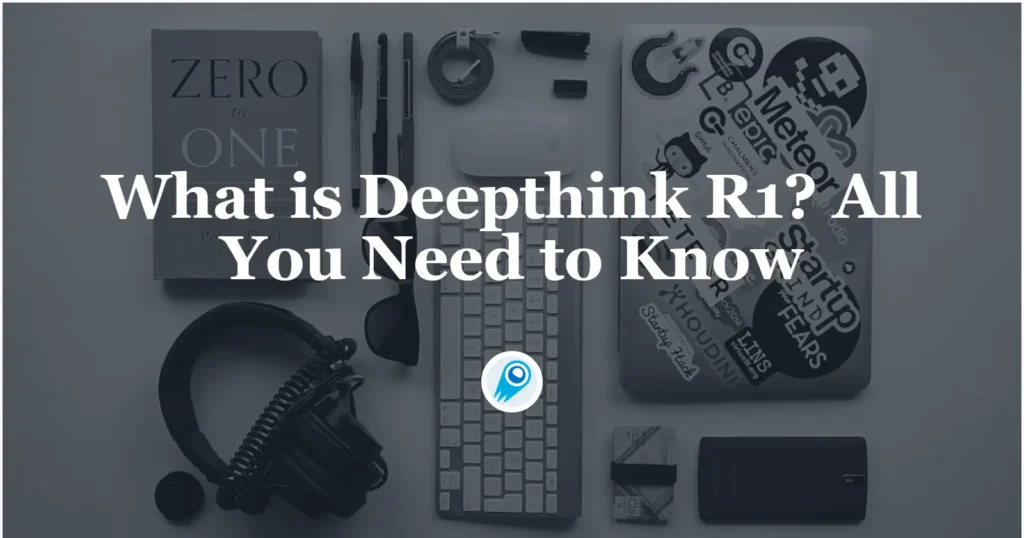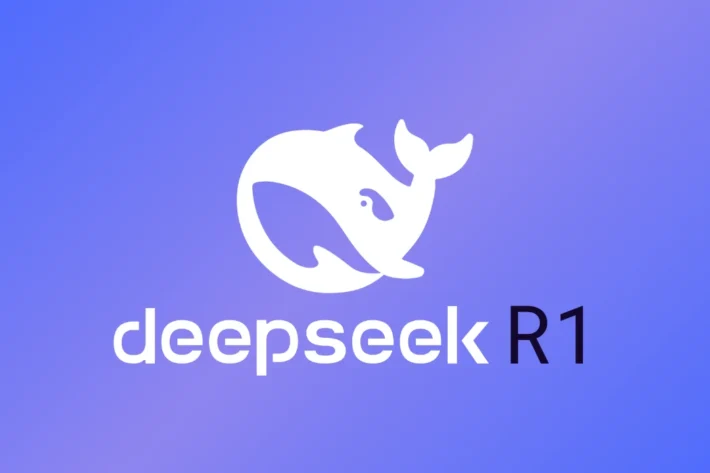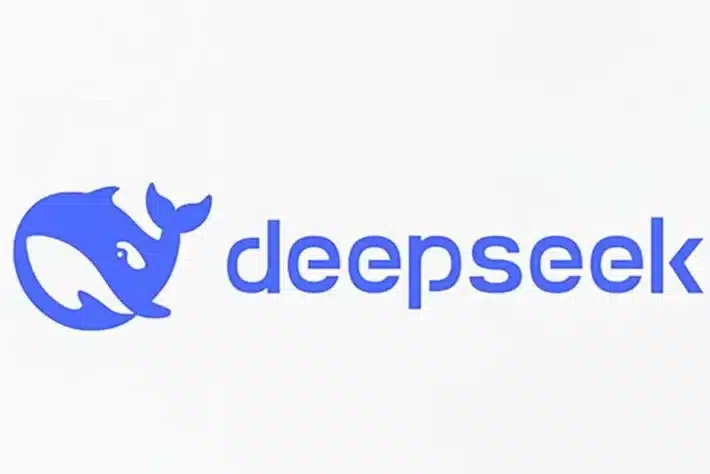What is Deepthink R1? All You Need to Know

DeepSeek, a fast-rising Chinese AI firm, recently launched DeepThink R1, an advanced reasoning model built atop its popular R1 series. The model has quickly made headlines—earning comparisons to OpenAI’s top models, dominating benchmarks, and attracting global attention. This article delves into DeepThink R1: what makes it special, how it fits into DeepSeek’s R1 lineage, its technical advancements, recent updates, adoption, controversies, and broader implications for AI development.
What is the Origin of DeepSeek R1?
How Did DeepSeek Emerge?
Founded in July 2023 by Liang Wenfeng, DeepSeek is headquartered in Hangzhou, China. With around 160 employees as of mid-2025, it’s backed by High‑Flyer, a Chinese hedge fund ([en.wikipedia.org][1]). From early on, DeepSeek attracted attention by open‑sourcing powerful large language models (LLMs) built using cost-effective methods—claiming to train with US \$6 million compared to OpenAI’s \$100 million for GPT‑4, while maintaining strong performance .
What Is R1?
On January 20, 2025, DeepSeek unveiled DeepSeek-R1, a first-generation large reasoning model trained via reinforcement learning (RL), producing a chain-of-thought reasoning process that users can trace . Unlike typical LLMs relying on supervised fine-tuning, R1 leverages millions of inference traces (R1‑Zero) and a staged training approach for enhanced reasoning capabilities . Outperforming many open models, R1 matched OpenAI’s o1 on benchmarks and continued pushing political discourse about China’s AI capabilities.
What Is a “Reasoning Model”?
Unlike traditional LLMs that primarily generate text, R1 introduces a self-supervised “Reasoning Model” mechanism. During the inference process, the model not only provides a final answer but can also self-correct its reasoning steps, thereby significantly improving accuracy in mathematics, logic, and code generation.
What Is DeepThink R1?
1. How Does DeepThink R1 Relate to R1?
“DeepThink R1” refers to a variant or branded interface for DeepSeek’s R1 series, particularly emphasizing its advanced reasoning (“think deep”) capabilities embedded in chat and API implementations.
- The official DeepSeek website highlights DeepThink R1 as a feature for “solving reasoning problems” using the DeepSeek API, with add-ons and plugin support .
- In releases and documentation, the R1-0528 update (May 28, 2025) is marketed under a “DeepThink” or “deep thinking” mode in the app, web portal, and API.
Thus, DeepThink R1 is essentially R1 enhanced with deeper introspection and reasoning chains—the core R1 model but packaged in “deep thinking” interactive mode.
2. When Was DeepThink R1 Released?
- DeepSeek-R1 originally launched on January 20, 2025, as an open-source model.
- On May 28, 2025, DeepSeek released a minor update dubbed R1-0528, improving reasoning depth, logic, and accuracy; this update underpins the current DeepThink R1 release .
How Does DeepThink R1 Improve Upon R1?
Deeper Thinking & Stronger Logic
The R1-0528 upgrade doubled the token usage per problem (from ~12K to ~23K), signifying a more thorough reasoning process. This “deep thinking” is visible to users, illustrating self-reflection using pivot tokens like “Aha!” .
Performance Gains
R1-0528 achieved outstanding benchmark results:
- AIME 2025 score increased from 70% to 87.5% .
- On LMArena WebDev Arena (June 17, 2025), R1-0528 tied for 1st place in programming with Claude Opus 4 and Gemini 2.5 Pro and led among open-source models .
Fewer Hallucinations
Improvements in factual accuracy include a 45–50% reduction in hallucination during tasks like summarization and rewriting
Expanded Long-Text & Tool Support
The model now outputs longer, coherent narratives in essays and fiction, and supports tool-calling (Function Calling, JSON output) on API and app channels .
Multi-scale Distillation
R1-0528 was distilled into smaller Qwen3‑8B models, delivering near‑R1 performance on math benchmarks such as AIME 2024.
Function Calling and JSON Support
Beyond raw reasoning improvements, R1-0528 introduces structured output features enabling seamless integration with downstream applications. Developers can now invoke DeepThink R1 as a “reasoning engine” within software pipelines, receiving responses in JSON format with explicit “steps” fields, or triggering external functions directly. This expands the model’s applicability, from chatbots requiring contextual API calls to automated data-analysis workflows that demand precise, machine-readable outputs.
How Does DeepThink R1 Differ from DeepSeek V3?
When to Choose R1 vs. V3?
DeepSeek maintains two parallel product lines:
- DeepSeek-V3: Designed for general-purpose tasks like daily queries, writing, and translation, with a focus on dialogue fluency and multimodal interactions;
- DeepSeek-R1 (DeepThink): Optimized for rigorous reasoning tasks such as mathematical problem-solving, code generation, and complex logic analysis.
Usage Recommendation
- For daily conversation and content creation: V3 is preferred for its natural and friendly dialogue experience.
- For technical reasoning and programming: R1 is better suited due to its structured thought process and precision .
Balancing Cost and Performance
R1 is cheaper to train and deploy compared to V3. It utilizes off-the-shelf Nvidia H800 GPUs rather than costly custom chips, with an overall training budget of just $5.6 million—far less than the tens of millions typically spent by OpenAI or Google. R1’s relatively low inference requirements also make it accessible for deployment on smaller hardware platforms .
What Are the Key Use Cases of DeepThink R1?
Mobile and Web-based AI Assistants
The DeepSeek app features an R1-powered assistant offering real-time conversation, Q&A, and code debugging. Users can access desktop-level AI reasoning on iOS and Android devices with no local compute required .
Open API for Developer Integration
Through DeepSeek’s open API platform, businesses and developers can integrate R1 into their own products:
- Smart Customer Support: Handle complex queries with logical accuracy;
- Coding Assistants: Generate and repair code intelligently;
- Financial Analysis: Perform multi-step calculations and data interpretation .
Local Offline Deployment
To meet privacy and latency demands, R1 supports local deployment via the Ollama toolchain, compatible with Windows, macOS (Apple Silicon), and Linux. Developers can download R1-3B/7B/14B versions and run powerful AI inference offline .
Conclusion
DeepThink R1 exemplifies the rapid evolution of reasoning-centric language models—delivering competitive performance at a fraction of the traditional training cost, while fostering open collaboration across the AI community.
Getting Started
CometAPI is a unified API platform that aggregates over 500 AI models from leading providers—such as OpenAI’s GPT series, Google’s Gemini, Anthropic’s Claude, Midjourney, Suno, and more—into a single, developer-friendly interface. By offering consistent authentication, request formatting, and response handling, CometAPI dramatically simplifies the integration of AI capabilities into your applications. Whether you’re building chatbots, image generators, music composers, or data‐driven analytics pipelines, CometAPI lets you iterate faster, control costs, and remain vendor-agnostic—all while tapping into the latest breakthroughs across the AI ecosystem.
Developers can access the latest deepseek API(Deadline for article publication): DeepSeek R1 API (model name: deepseek-r1-0528)through CometAPI. To begin, explore the model’s capabilities in the Playground and consult the API guide for detailed instructions. Before accessing, please make sure you have logged in to CometAPI and obtained the API key. CometAPI offer a price far lower than the official price to help you integrate.


